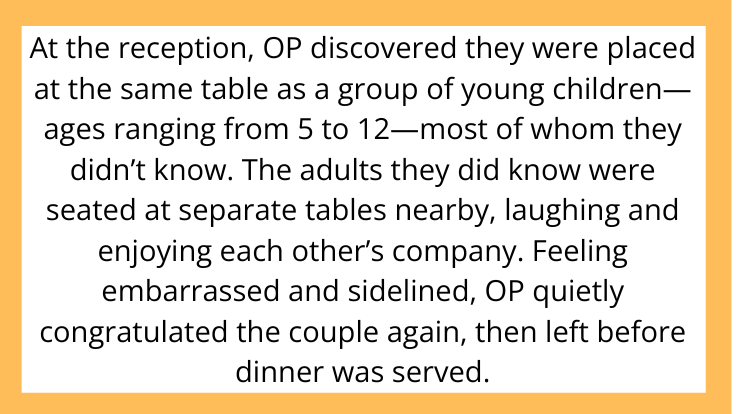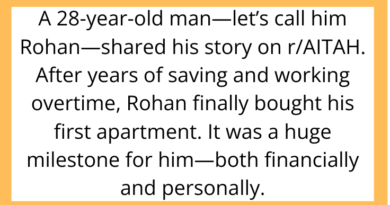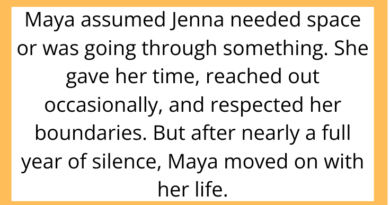Am I the Jerk for Leaving My Best Friend’s Wedding Early After Being Seated at the “Kids’ Table”?
When it comes to weddings, most of us expect a little awkwardness—unfamiliar relatives, complicated seating arrangements, and rigid schedules. But what happens when the seating chart feels less like an oversight and more like a subtle insult? That’s exactly what one Redditor faced when they were assigned a spot at the “kids’ table” during their best friend’s wedding.
What started as a celebration quickly turned into hurt feelings, social embarrassment, and a tough decision that has the internet split: Was it rude to leave early—or a justified reaction?
The Backstory: A Lifelong Friendship Hits a Bump
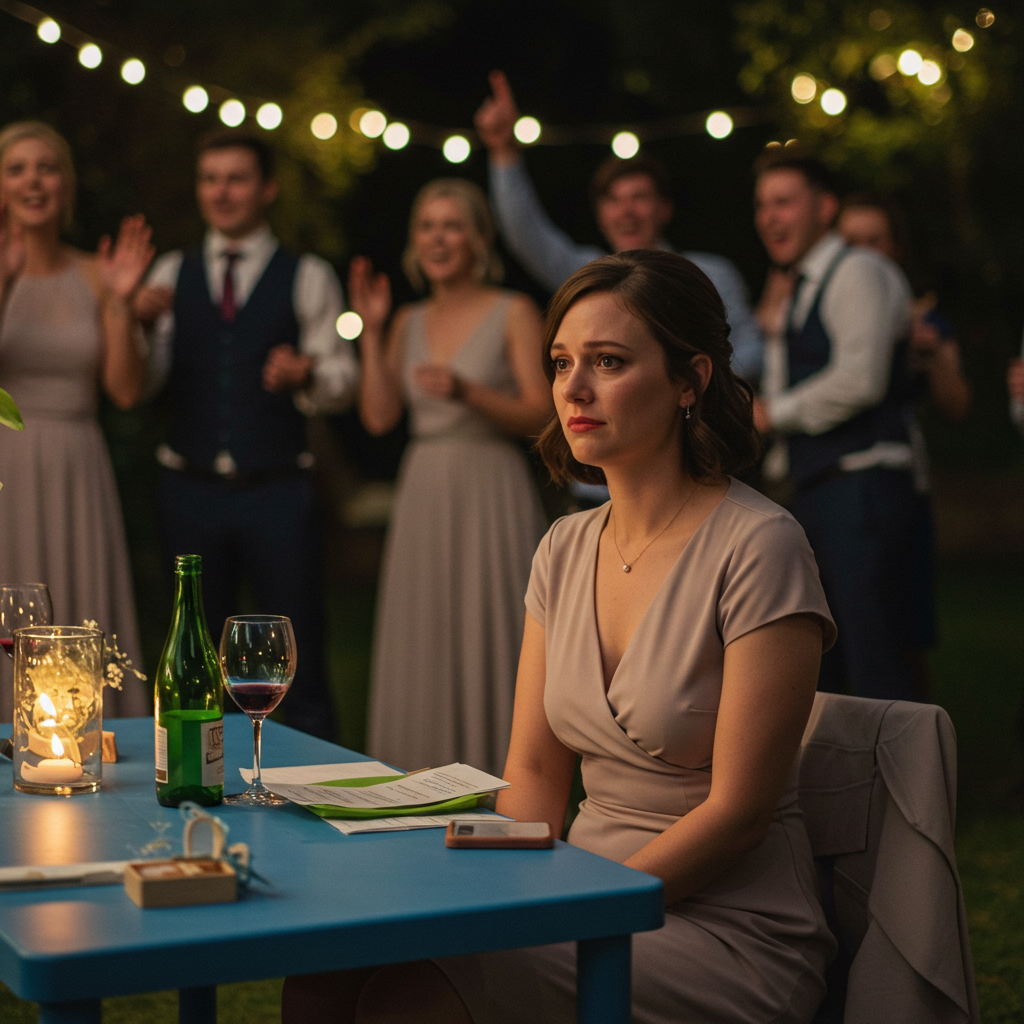
The Original Poster (OP) explained that they had been best friends with the bride since childhood. They were not part of the wedding party but had helped with planning, dress shopping, and even lent money during the couple’s engagement. So when the big day came, OP was thrilled to be there as a guest and expected a seat among friends or at least other adults.
But things went south quickly.
At the reception, OP discovered they were placed at the same table as a group of young children—ages ranging from 5 to 12—most of whom they didn’t know. The adults they did know were seated at separate tables nearby, laughing and enjoying each other’s company. Feeling embarrassed and sidelined, OP quietly congratulated the couple again, then left before dinner was served.
The next day, the bride texted them, furious, accusing OP of “making a scene,” being “dramatic,” and “ruining the vibe.” Now OP is left wondering: Am I the jerk for walking out of my best friend’s wedding after being seated at the kids’ table?
Weddings and Etiquette: Why Seating Matters
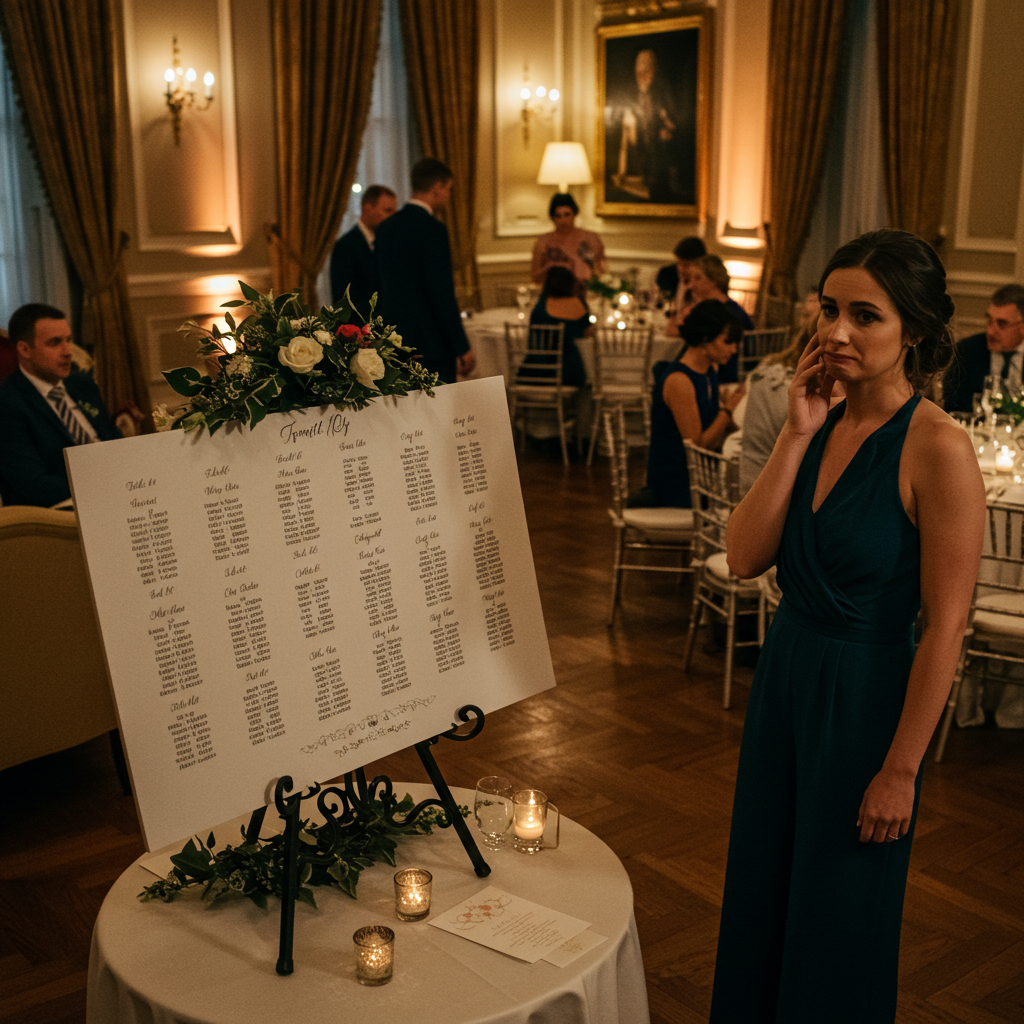
Seating Charts Are About Inclusion—and Sometimes Exclusion
While it might seem trivial, seating arrangements at weddings are more than logistics—they’re a reflection of how the couple values and organizes their relationships. Most weddings go out of their way to ensure guests feel comfortable, respected, and socially included.
In this case, placing a long-time best friend with children felt dismissive. Whether it was a genuine oversight or a passive-aggressive move, it sent a message.
Adult Guests Deserve Adult Seating
OP wasn’t asking to be seated at the head table. They weren’t demanding special treatment. They simply expected to be placed with peers. Sitting a grown adult with a group of unsupervised kids—especially one who had helped with the wedding—is not just awkward, it’s belittling.
Redditors were quick to point out that this sort of decision, intentional or not, can easily sour a guest’s experience.
The Fallout: Hurt Feelings and Angry Texts
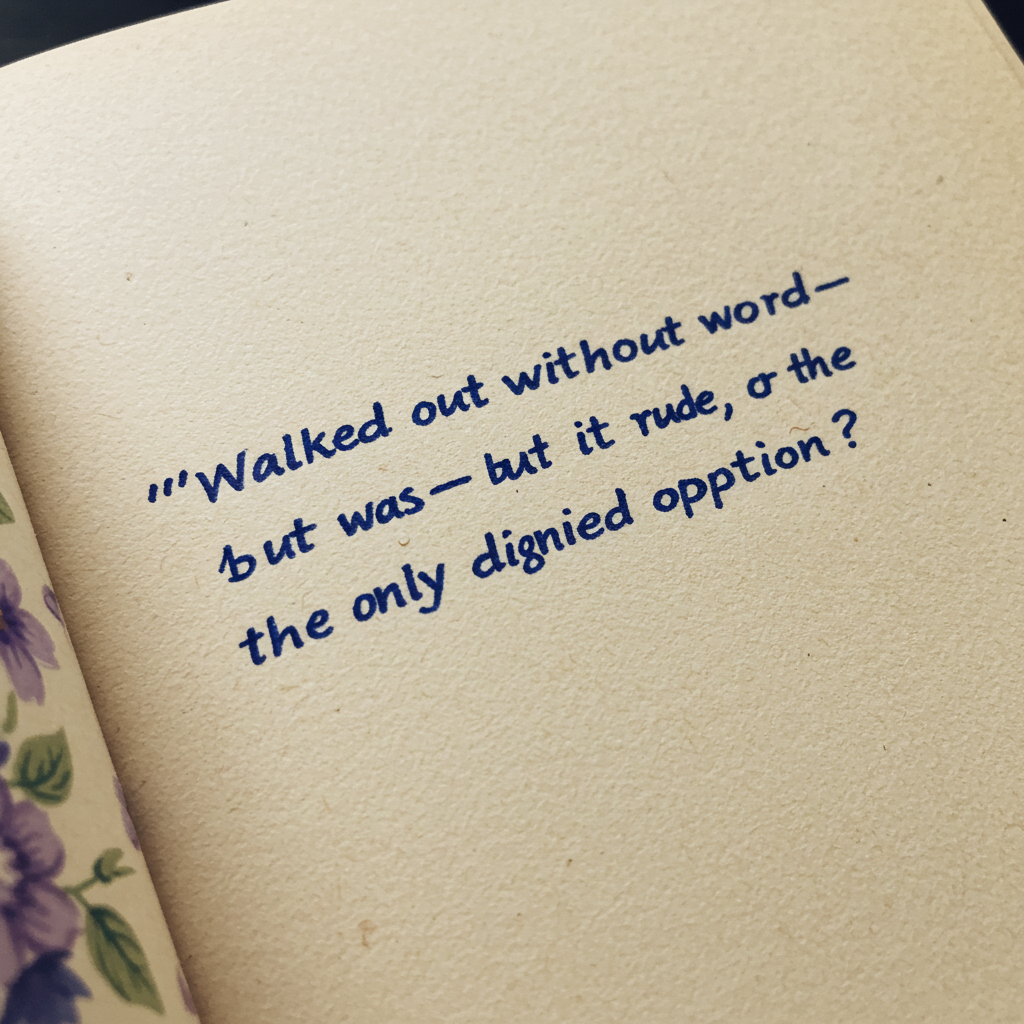
Was Leaving the Wedding an Overreaction?
Some might say OP should have stayed, sucked it up, and enjoyed the evening. But context matters. OP wasn’t just any guest—they were a longtime friend and supporter of the couple. Being sidelined in such a blatant way felt like a betrayal.
After leaving, OP didn’t post publicly, cause a scene, or make demands. They simply bowed out quietly. For many in the AITAH community, that reaction wasn’t rude—it was restrained.
The Bride’s Reaction: Projection or Justified?

The bride’s response—accusing OP of “ruining the mood”—felt to many like misdirected guilt. Instead of reflecting on how the seating choice might have impacted her friend, she focused on optics.
OP wasn’t rude. They didn’t sabotage anything. They made a decision based on hurt feelings, and rather than escalate, they removed themselves from the situation.
Is There Room for Grace—and an Apology?
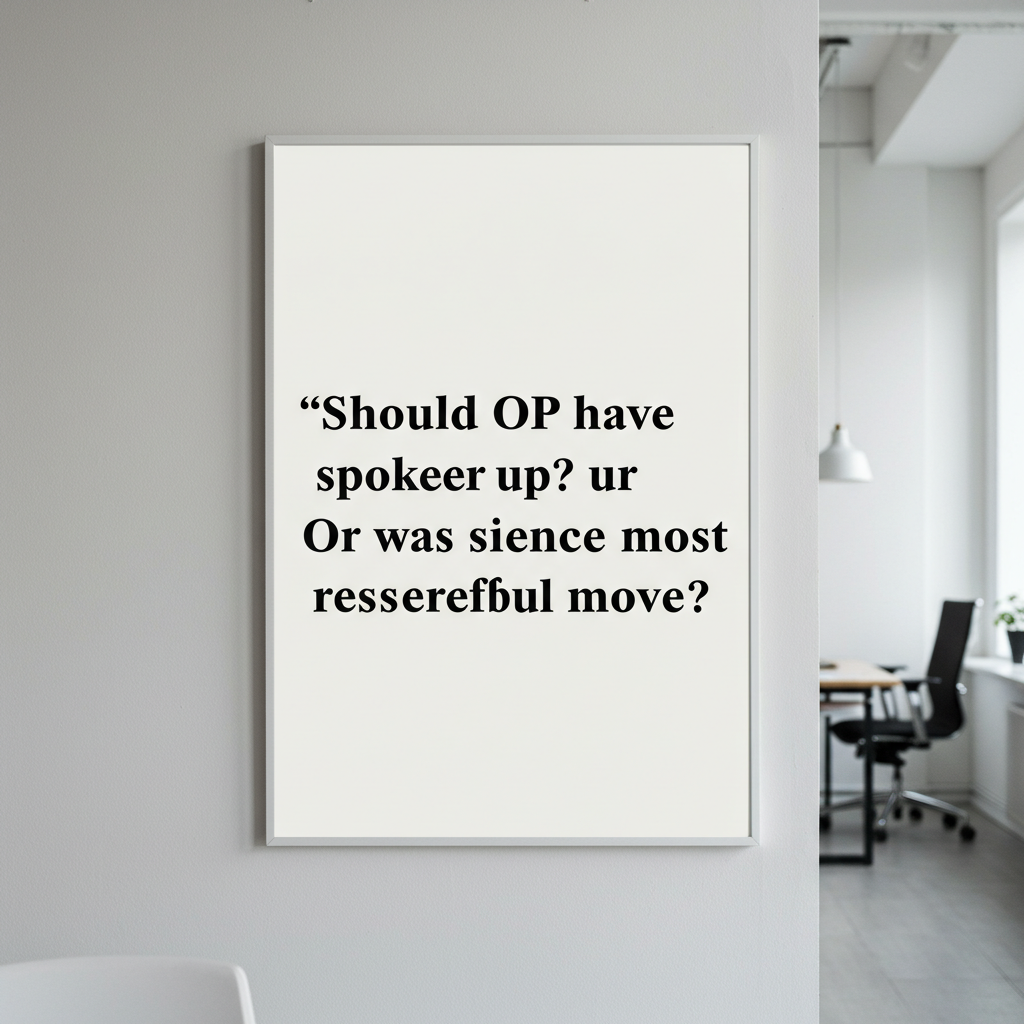
Could OP Have Spoken Up?
Some commenters noted that OP could have approached the bride or groom before leaving. Maybe it was a mistake. Maybe someone had been moved last-minute and OP ended up at the wrong table.
That said, many guests don’t want to create drama on someone else’s big day. For OP, the most polite path felt like quietly exiting.
Should the Bride Have Apologized Instead?
What many readers agreed on was that, at the very least, the bride could have acknowledged the awkwardness and offered a sincere apology. Even a message like, “Sorry about the mix-up, we were scrambling and made some mistakes” could have gone a long way.
Instead, she doubled down with accusations.
What the AITAH Community Said
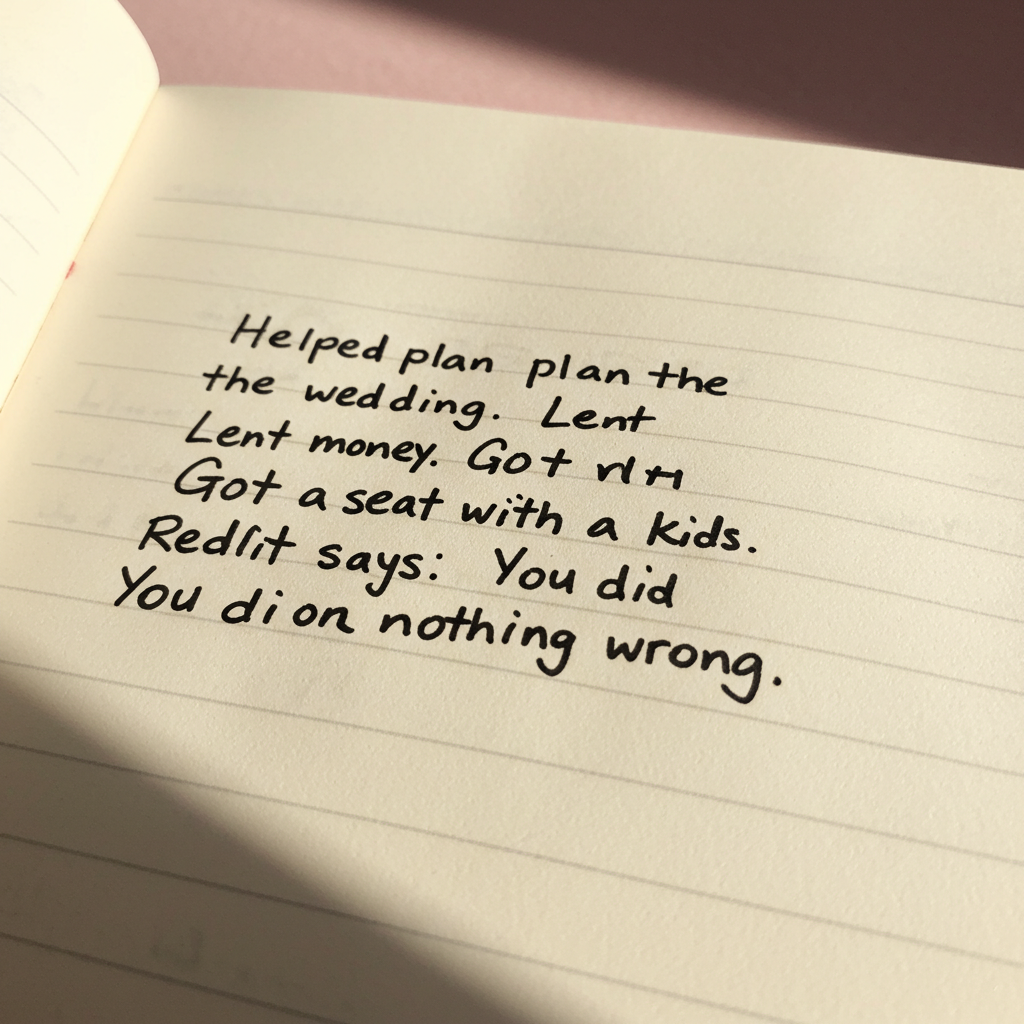
Reddit’s judgment: Not the jerk.
Here are some of the top-voted responses:
“You supported her wedding, helped plan it, and she sat you with literal children? That’s not a mistake—that’s a message.”
“You didn’t ruin anything. You protected your dignity.”
“This was a wedding, not a punishment. You were justified.”
Others suggested that the friendship might not be as mutual as OP believed. Sometimes weddings reveal imbalances in how we see relationships—and this may have been one of those moments.
Final Thoughts: When Boundaries Are Mistaken for Betrayal
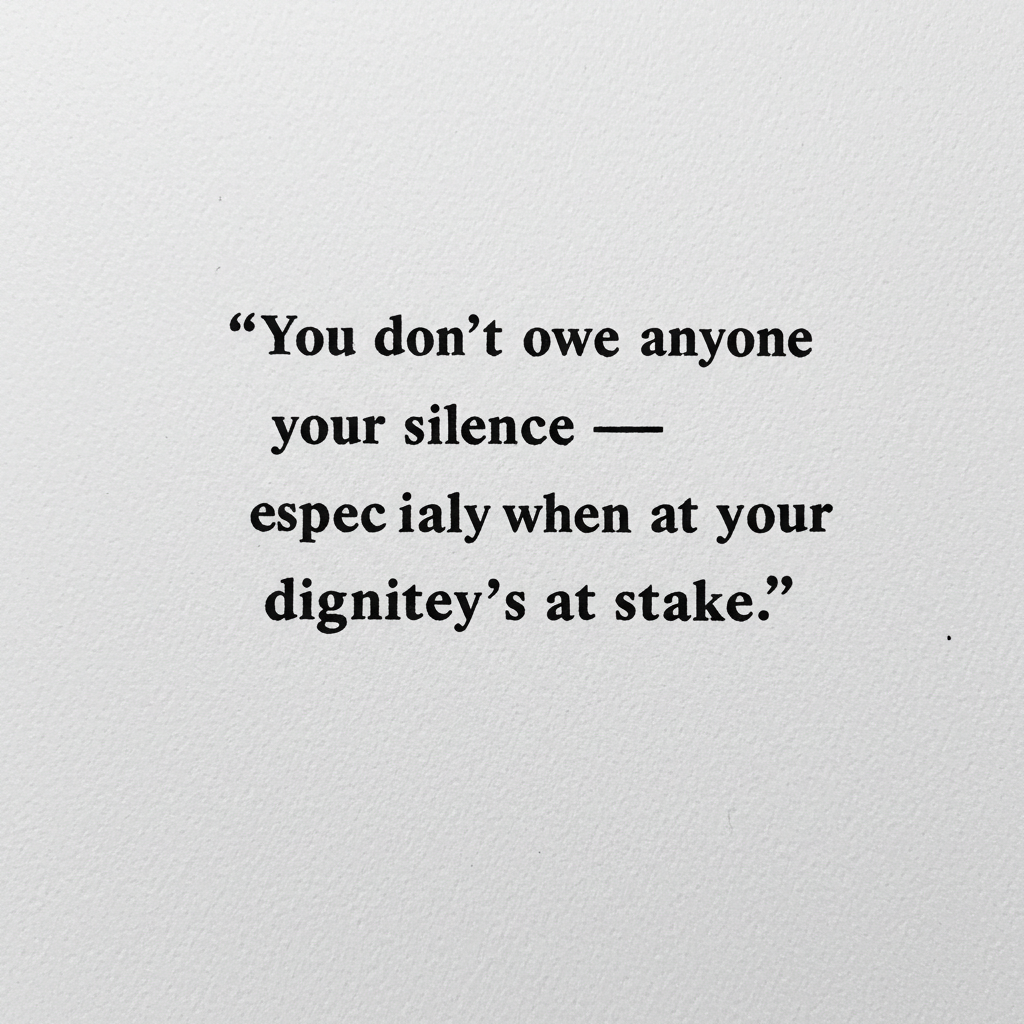
At the heart of this story is a simple truth: boundaries aren’t betrayals. OP didn’t yell, demand attention, or create a public scene. They quietly exited an environment where they felt unwelcome.
Weddings are meant to celebrate love and connection. But when basic respect is missing, it’s okay to remove yourself—especially if staying would mean swallowing unnecessary disrespect.
In this case, the AITAH community rallied behind OP, making it clear that protecting your dignity, even at a wedding, doesn’t make you a jerk.
